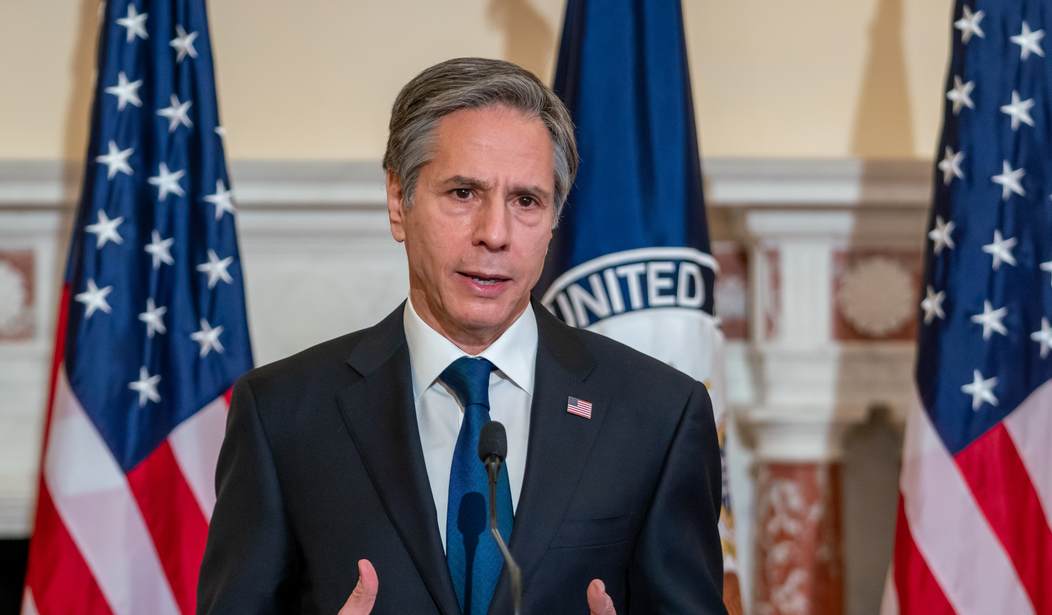In his first European trip, US Secretary of State Antony Blinken is scheduled to meet European foreign policy leaders this week. A major topic of discussion will be the Iranian regime and how to deal with the threats it poses to regional and international peace and security.
Any potential negotiations with the Iranian regime should take into account its dangerous missiles program. It is evident that the Iranian regime's activities since the implementation of the Joint Comprehensive Plan of Action (JCPOA) have not demonstrated that the nuclear agreement has been successful. That is because the missile program is a critical issue on both sides of the Atlantic.
Iran's ballistic missile activities go back to the 1980s. In the preface of the JCPOA, western countries stressed that the signatories anticipate full implementation of the deal will contribute to regional and international peace and security. Resolution 2231 of the UN Security Council specifically called on Iran to refrain from activities related to nuclear-capable missiles.
However, almost immediately after the implementation of the JCPOA, the Tehran regime started violating the spirit of that agreement. The regime expanded the production, tests, and even export of its missiles.
On March 29, 2016, just three months after the implementation of the nuclear agreement, the United States, the United Kingdom, France, and Germany wrote a joint letter to the secretary general of the United Nations explicitly accusing Tehran of defying Security Council Resolution 2231. The regime was conducting missile tests in violation of this resolution.
German Chancellor Angela Merkel said on July 7, 2016, that "Iran continued unabated to develop its rocket program in conflict with the relevant provisions of the U.N. Security Council." The Middle East and North Africa subcommittee of the U.S. House of Representatives Foreign Affairs Committee held a hearing on March 31, 2017, where it said, "Since the signing of the JCPOA, Iran has tested at least 15 ballistic missiles and has done so in open defiance of resolution 2231."
Recommended
The regime is also obtaining illicit and smuggled equipment and parts of equipment needed for manufacturing missiles and weapons of mass destruction. A German intelligence report which followed the nuclear agreement in 2015, said, "There has been little to no decrease in the Islamic Republic's efforts to gain technology for missiles capable of carrying warheads."
The regime has kept expanding their ballistic missile program. And it has done so with impunity, particularly from the E.U. countries throughout the last five years.
The Islamic Revolutionary Guard Corps (IRGC) is spearheading the Iranian regime’s ballistic missiles program, which is why European countries should designate it as a terrorist entity. Tehran has become a major provider of missiles and missile technology to its terrorist proxies throughout the region, including the Houthis in Yemen.
The Iranian regime has advanced a policy of continuing to manufacture, expand, export, and even use ballistic missiles. These weapons are becoming more lethal, precise, accurate, and dangerous, and they are a growing threat to regional and international security.
It is simply naive and dangerous to re-enter the JCPOA without including such a threat. The regime’s unacceptable behavior goes beyond nuclear proliferation and involves missile proliferation and regional terrorism. Addressing that should be a priority.
When it comes to trans-Atlantic cooperation, in 2021, regional security risks must be a core component of any new understanding on nonproliferation. Iran's missile program supports terrorist and malicious activities around the world. It must be stopped.
Tehran’s terrorism was on perfect display when in February 2021, a number of its terrorists, including an accredited diplomat, were sentenced to long-term prison terms for being involved in a major terrorist plot against a gathering of the main opposition National Council of Resistance of Iran (NCRI) in Paris in 2018.
A Belgian court in Antwerp convicted the regime’s diplomat for handing a TATP bomb to a terrorist sleeper cell so they could blow it up at a gathering of dissidents. After this court verdict, Europeans should take action. As Mr. Blinken meets European foreign policy leaders, both sides of the Atlantic must send a strong and firm message to the regime in Tehran: the days of impunity and terrorism are over.

























Join the conversation as a VIP Member